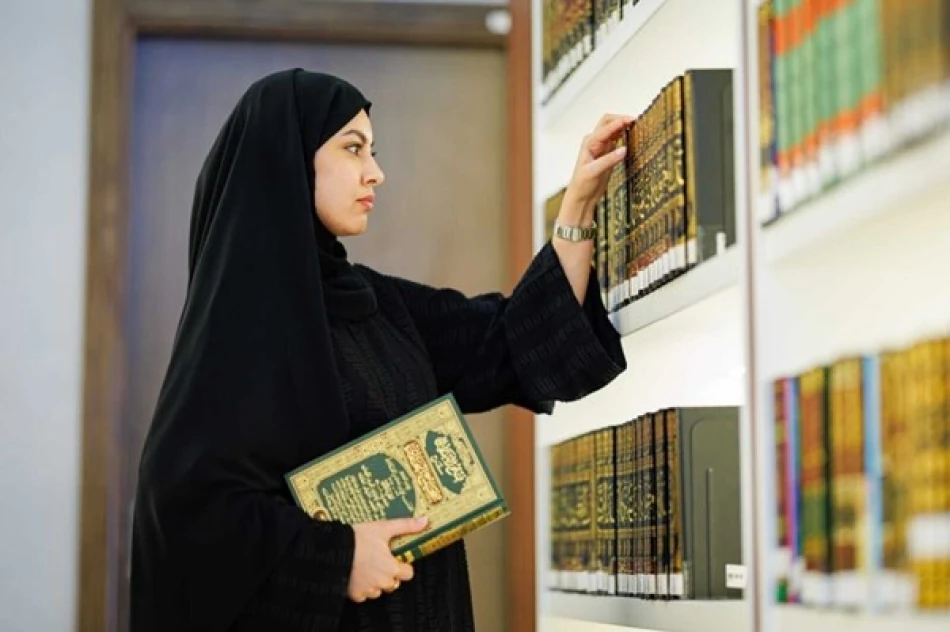
Mohamed Bin Zayed University Enhances Islamic Studies Programs for Transformative Academic Experiences
UAE University Revolutionizes Islamic Studies with Integrated Program Promoting Tolerance and National Identity
Mohammed bin Zayed University for Humanities has launched a groundbreaking Bachelor's program in Islamic Studies that merges traditional religious disciplines with contemporary educational approaches, positioning the UAE as a leader in modernizing Islamic education while strengthening its knowledge-based economy and promoting religious tolerance.
A Strategic Academic Integration
The new program represents a significant departure from traditional Islamic studies education by combining three specialized fields—Islamic jurisprudence and religious rulings, Quranic and Hadith studies, and religious discourse and society—into a unified curriculum. This integration aims to produce graduates who possess both deep religious knowledge and the practical skills needed to address contemporary challenges.
The program specifically emphasizes the UAE's national identity in religious discourse, promoting values of mercy, tolerance, peace, and knowledge while correcting misconceptions about Islam. This approach aligns with the UAE's broader strategy to position itself as a global hub for moderate Islamic thought and interfaith dialogue.
Bridging Theory and Practice
Unlike traditional Islamic studies programs that often focus heavily on theoretical knowledge, this curriculum includes mandatory field training and capstone projects. Students must apply their academic learning in real-world contexts, preparing them for careers in religious and social sectors where practical application of Islamic principles is essential.
Dr. Najla Al-Naqbi, the university's Vice President for Academic Affairs, emphasized that graduates will be equipped to play active roles in promoting religious tolerance and intellectual security within society—objectives that have become increasingly important in the region's current geopolitical climate.
Regional Context and Competitive Positioning
This educational initiative comes as Gulf states increasingly compete to establish themselves as centers of Islamic scholarship and moderate religious thought. Saudi Arabia has invested heavily in modernizing its religious education through Vision 2030, while Qatar has positioned itself as a hub for Islamic finance education. The UAE's approach distinguishes itself by explicitly integrating national identity with religious education, creating a unique model that other countries may seek to emulate.
Knowledge Economy Integration
The program directly supports the UAE's transition to a knowledge-based economy by creating a new category of educated professionals who can bridge religious and secular sectors. This is particularly relevant as the country seeks to diversify beyond oil revenues and establish itself as a regional center for education, finance, and technology.
The emphasis on innovative courses that address current realities while anticipating future needs suggests the university is preparing graduates for emerging career paths that didn't exist in traditional Islamic education, potentially including roles in digital Islamic services, interfaith corporate consulting, and international religious diplomacy.
Implications for Islamic Education Globally
This program could influence Islamic educational institutions worldwide, particularly those seeking to balance traditional religious scholarship with modern pedagogical approaches. By demonstrating that Islamic studies can be both academically rigorous and practically relevant, the UAE may attract international students and establish new standards for Islamic higher education.
The integration of field experience and capstone projects addresses a common criticism of traditional Islamic education—that it produces scholars who are well-versed in theory but struggle to apply their knowledge in contemporary contexts. This practical emphasis could make UAE-educated Islamic studies graduates more competitive in both regional and international job markets.
Most Viewed News

 Layla Al Mansoori
Layla Al Mansoori






